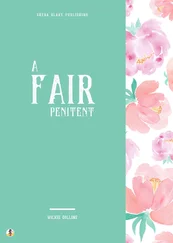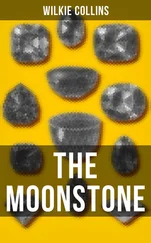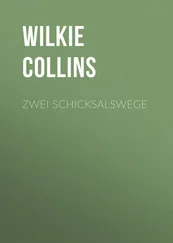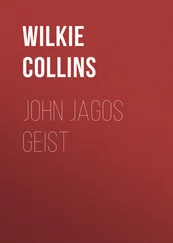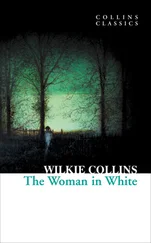Wilkie Collins - The Moonstone
Здесь есть возможность читать онлайн «Wilkie Collins - The Moonstone» — ознакомительный отрывок электронной книги совершенно бесплатно, а после прочтения отрывка купить полную версию. В некоторых случаях можно слушать аудио, скачать через торрент в формате fb2 и присутствует краткое содержание. Год выпуска: 2006, Жанр: Классическая проза, на английском языке. Описание произведения, (предисловие) а так же отзывы посетителей доступны на портале библиотеки ЛибКат.
- Название:The Moonstone
- Автор:
- Жанр:
- Год:2006
- ISBN:нет данных
- Рейтинг книги:4 / 5. Голосов: 1
-
Избранное:Добавить в избранное
- Отзывы:
-
Ваша оценка:
- 80
- 1
- 2
- 3
- 4
- 5
The Moonstone: краткое содержание, описание и аннотация
Предлагаем к чтению аннотацию, описание, краткое содержание или предисловие (зависит от того, что написал сам автор книги «The Moonstone»). Если вы не нашли необходимую информацию о книге — напишите в комментариях, мы постараемся отыскать её.
The Moonstone — читать онлайн ознакомительный отрывок
Ниже представлен текст книги, разбитый по страницам. Система сохранения места последней прочитанной страницы, позволяет с удобством читать онлайн бесплатно книгу «The Moonstone», без необходимости каждый раз заново искать на чём Вы остановились. Поставьте закладку, и сможете в любой момент перейти на страницу, на которой закончили чтение.
Интервал:
Закладка:
Nothing has been heard of Sergeant Cuff. He is no doubt still in Ireland. We must not expect to see him to-night.
Betteredge has just come in, to say that Mr. Blake has asked for me. I must lay down my pen for the present.
Seven o’clock.—We have been all over the refurnished rooms and staircases again; and we have had a pleasant stroll in the shrubbery, which was Mr. Blake’s favourite walk when he was here last. In this way, I hope to revive the old impressions of places and things as vividly as possible in his mind.
We are now going to dine, exactly at the hour at which the birthday dinner was given last year. My object, of course, is a purely medical one in this case. The laudanum must find the process of digestion, as nearly as may be, where the laudanum found it last year.
At a reasonable time after dinner I propose to lead the conversation back again—as inartificially as I can—to the subject of the Diamond, and of the Indian conspiracy to steal it. When I have filled his mind with these topics, I shall have done all that it is in my power to do, before the time comes for giving him the second dose.
Half-past eight.—I have only this moment found an opportunity of attending to the most important duty of all; the duty of looking in the family medicine chest, for the laudanum which Mr. Candy used last year.
Ten minutes since, I caught Betteredge at an unoccupied moment, and told him what I wanted. Without a word of objection, without so much as an attempt to produce his pocket-book, he led the way (making allowances for me at every step) to the store-room in which the medicine chest is kept.
I discovered the bottle, carefully guarded by a glass stopper tied over with leather. The preparation which it contained was, as I had anticipated, the common Tincture of Opium. Finding the bottle still well filled, I have resolved to use it, in preference to employing either of the two preparations with which I had taken care to provide myself, in case of emergency.
The question of the quantity which I am to administer presents certain difficulties. I have thought it over, and have decided on increasing the dose.
My notes inform me that Mr. Candy only administered twenty-five minims. This is a small dose to have produced the results which followed—even in the case of a person so sensitive as Mr. Blake. I think it highly probable that Mr. Candy gave more than he supposed himself to have given—knowing, as I do, that he has a keen relish of the pleasures of the table, and that he measured out the laudanum on the birthday, after dinner. In any case, I shall run the risk of enlarging the dose to forty minims. On this occasion, Mr. Blake knows beforehand that he is going to take the laudanum—which is equivalent, physiologically speaking, to his having (unconsciously to himself) a certain capacity in him to resist the effects. If my view is right, a larger quantity is therefore imperatively required, this time, to repeat the results which the smaller quantity produced, last year.
Ten o’clock.—The witnesses, or the company (which shall I call them?) reached the house an hour since.
A little before nine o’clock, I prevailed on Mr. Blake to accompany me to his bedroom; stating, as a reason, that I wished him to look round it, for the last time, in order to make quite sure that nothing had been forgotten in the refurnishing of the room. I had previously arranged with Betteredge, that the bedchamber prepared for Mr. Bruff should be the next room to Mr. Blake’s, and that I should be informed of the lawyer’s arrival by a knock at the door. Five minutes after the clock in the hall had struck nine, I heard the knock; and, going out immediately, met Mr. Bruff in the corridor.
My personal appearance (as usual) told against me. Mr. Bruff’s distrust looked at me plainly enough out of Mr. Bruff’s eyes. Being well used to producing this effect on strangers, I did not hesitate a moment in saying what I wanted to say, before the lawyer found his way into Mr. Blake’s room.
“You have travelled here, I believe, in company with Mrs. Merridew and Miss Verinder?” I said.
“Yes,” answered Mr. Bruff, as drily as might be.
“Miss Verinder has probably told you, that I wish her presence in the house (and Mrs. Merridew’s presence of course) to be kept a secret from Mr. Blake, until my experiment on him has been tried first?”
“I know that I am to hold my tongue, sir!” said Mr. Bruff, impatiently. “Being habitually silent on the subject of human folly, I am all the readier to keep my lips closed on this occasion. Does that satisfy you?”
I bowed, and left Betteredge to show him to his room. Betteredge gave me one look at parting, which said, as if in so many words, “You have caught a Tartar, Mr. Jennings—and the name of him is Bruff.”
It was next necessary to get the meeting over with the two ladies. I descended the stairs—a little nervously, I confess—on my way to Miss Verinder’s sitting-room.
The gardener’s wife (charged with looking after the accommodation of the ladies) met me in the first-floor corridor. This excellent woman treats me with an excessive civility which is plainly the offspring of down-right terror. She stares, trembles, and curtseys, whenever I speak to her. On my asking for Miss Verinder, she stared, trembled, and would no doubt have curtseyed next, if Miss Verinder herself had not cut that ceremony short, by suddenly opening her sitting-room door.
“Is that Mr. Jennings?” she asked.
Before I could answer, she came out eagerly to speak to me in the corridor. We met under the light of a lamp on a bracket. At the first sight of me, Miss Verinder stopped, and hesitated. She recovered herself instantly, coloured for a moment—and then, with a charming frankness, offered me her hand.
“I can’t treat you like a stranger, Mr. Jennings,” she said. “Oh, if you only knew how happy your letters have made me!”
She looked at my ugly wrinkled face, with a bright gratitude so new to me in my experience of my fellow-creatures, that I was at a loss how to answer her. Nothing had prepared me for her kindness and her beauty. The misery of many years has not hardened my heart, thank God. I was as awkward and as shy with her, as if I had been a lad in my teens.
“Where is he now?” she asked, giving free expression to her one dominant interest—the interest in Mr. Blake. “What is he doing? Has he spoken of me? Is he in good spirits? How does he bear the sight of the house, after what happened in it last year? When are you going to give him the laudanum? May I see you pour it out? I am so interested; I am so excited—I have ten thousand things to say to you, and they all crowd together so that I don’t know what to say first. Do you wonder at the interest I take in this?”
“No,” I said. “I venture to think that I thoroughly understand it.”
She was far above the paltry affectation of being confused. She answered me as she might have answered a brother or a father.
“You have relieved me of indescribable wretchedness; you have given me a new life. How can I be ungrateful enough to have any concealment from you? I love him,” she said simply, “I have loved him from first to last—even when I was wronging him in my own thoughts; even when I was saying the hardest and the cruellest words to him. Is there any excuse for me, in that? I hope there is—I am afraid it is the only excuse I have. When to-morrow comes, and he knows that I am in the house, do you think——”
She stopped again, and looked at me very earnestly.
“When to-morrow comes,” I said, “I think you have only to tell him what you have just told me.”
Her face brightened; she came a step nearer to me. Her fingers trifled nervously with a flower which I had picked in the garden, and which I had put into the button-hole of my coat.
Читать дальшеИнтервал:
Закладка:
Похожие книги на «The Moonstone»
Представляем Вашему вниманию похожие книги на «The Moonstone» списком для выбора. Мы отобрали схожую по названию и смыслу литературу в надежде предоставить читателям больше вариантов отыскать новые, интересные, ещё непрочитанные произведения.
Обсуждение, отзывы о книге «The Moonstone» и просто собственные мнения читателей. Оставьте ваши комментарии, напишите, что Вы думаете о произведении, его смысле или главных героях. Укажите что конкретно понравилось, а что нет, и почему Вы так считаете.






